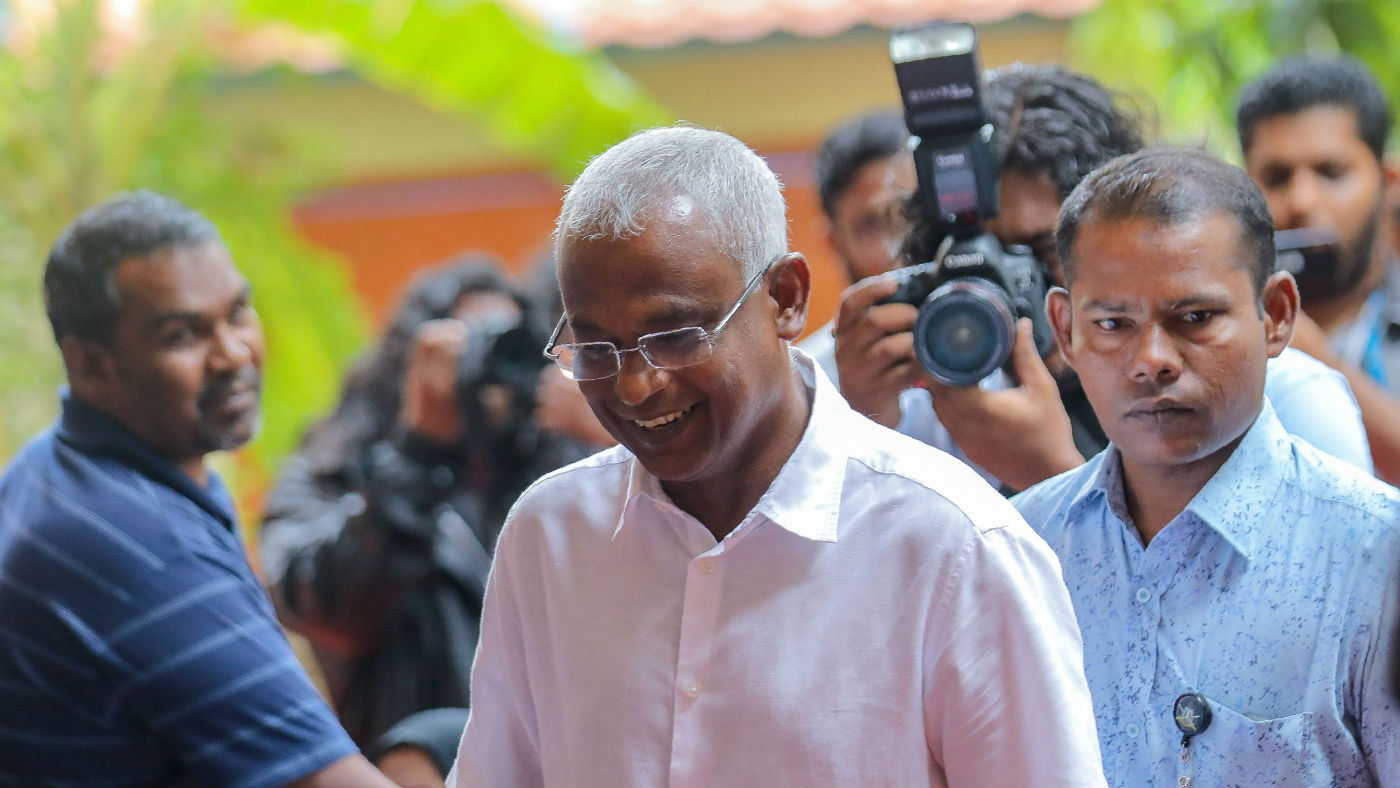Maldives’ opposition shock election victory marks ‘new dawn’
Result could shift power on strategically important country from China to India

A free daily email with the biggest news stories of the day – and the best features from TheWeek.com
You are now subscribed
Your newsletter sign-up was successful
The Maldives’ opposition leader, Ibrahim Mohamed Solih, has claimed his shock election victory marks a “new dawn” for the tiny-island archipelago country, but it could also have much wider ramifications for the region.
Maldives’ strongman president Yameen Abdul Gayoom unexpectedly conceded defeat following this weekend’s general election which many international observers had feared would be rigged in the incumbent's favour.
Solih and his opposition alliance had dismissed Sunday's vote, which had a staggering turnout of 89%, as unfair, right up to the point when they were declared winners by the Maldives Election Commission.
The Week
Escape your echo chamber. Get the facts behind the news, plus analysis from multiple perspectives.

Sign up for The Week's Free Newsletters
From our morning news briefing to a weekly Good News Newsletter, get the best of The Week delivered directly to your inbox.
From our morning news briefing to a weekly Good News Newsletter, get the best of The Week delivered directly to your inbox.
The country has suffered a turbulent transition to democracy since the end of three decades of authoritarian rule in 2008.
Yameen came to power in 2013 in a disputed election that opponents say was rigged, CNN reports, and “since then, he has been accused of eroding democracy, cracking down on dissent and jailing opposition leaders”.
In 2016, the Maldives withdrew from the Commonwealth after the association of former British colonies threatened to suspend it for chipping away at democratic institutions.
Veteran reformer lawmaker Solih “overcame the detention and exile of key opposition figures… but now faces the task of holding together a disparate coalition,” Reuters says.
A free daily email with the biggest news stories of the day – and the best features from TheWeek.com
While The Maldives is a nation of fewer than half a million people, the result is likely to also “have major significance for the wider region as China and India vie for influence in the strategic island nation”, reports The Independent.
Yameen, a hardliner who had cultivated ties with both Beijing and Saudi Arabia, has drawn stinging criticism from New Delhi for his authoritarian tactics.
Relations between the two countries reached a nadir in February when the president declared a state of emergency to bypass a Supreme Court order calling for the release of political prisoners, fueling speculation India could intervene militarily to overthrow him.
Responding to the shock result, India’s foreign ministry said: “This election marks not only the triumph of democratic forces in the Maldives, but also reflects the firm commitment to the values of democracy and the rule of law.”
Mohamed Junayd for Reuters says the result is “a possible setback for China as the new leaders of the Indian Ocean archipelago nation aim to review major projects agreed with the outgoing administration”.
Yet while likely to precipitate a shift away from Beijing’s sphere of influence, The Times of India’s diplomatic editor, Indrani Bagchi, said the Maldives under Solih “will continue to have close ties with China, not least because of the debt and the demand of infrastructure which India is quite poor at”.
“China won’t go away,” she said. “But India is back in the game.”